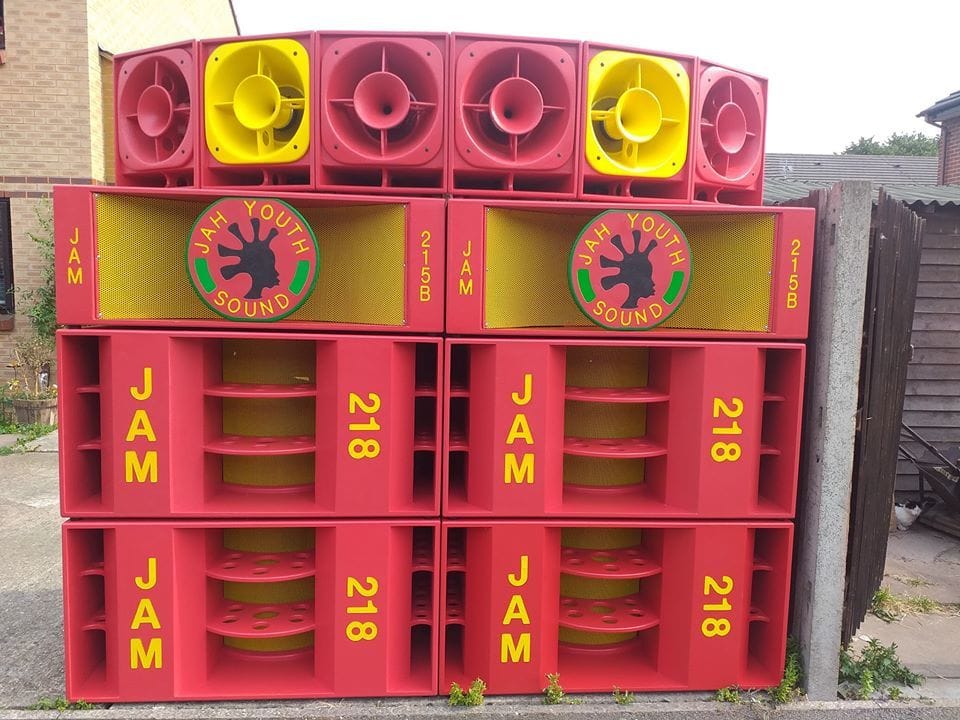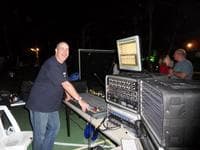- Posts: 802
- Thank you received: 0
Sound (bass) coming from back of cabs
- nickyburnell
-
 Topic Author
Topic Author
- Offline
- Platinum Member
-

Less
More
15 years 5 months ago #9481
by nickyburnell
The 3" coil one I presume?
Replied by nickyburnell on topic Sound (bass) coming from back of cabs
Oh, cutting smiley26mykey- wrote: no way, should be equal
unless they are really old and called Wembly B lines
The 3" coil one I presume?
Please Log in or Create an account to join the conversation.
- mykey-
-

- Offline
- Platinum Member
-

Less
More
- Posts: 410
- Thank you received: 2
15 years 5 months ago #9482
by mykey-
Replied by mykey- on topic Sound (bass) coming from back of cabs
Goodmans chassis jobbies, really old
the 2 brothers in Dalston lane used to sell them, arguments I had with them about spiders giving in
was it Johnston's? something like that
the 2 brothers in Dalston lane used to sell them, arguments I had with them about spiders giving in
was it Johnston's? something like that
Please Log in or Create an account to join the conversation.
- Daz
-

- Offline
- Senior Member
-

Less
More
- Posts: 43
- Thank you received: 1
14 years 7 months ago #14208
by Daz
Replied by Daz on topic Sound (bass) coming from back of cabs
Hi all
While I totaly agree that drivers should show the same amount of displacement forward/back Some do seem to be more affected by cab loading than others and for some reason do display this. Direct radiating ported units seem to suffer badly from this if they are not properly airtight (ports aside of course)? Is it easyer to suck or blow? :lol:
I also suspect that some of this can be caused by power amps that develop offsets when driven hard and I am guessing this is down to the power rails becoming uneven at maxed outputs.
Some of the megga bass at the rear syndrome could also be tied in with what the cab is sitting on. I have worked on lots of stage systems that resonate realy badly at the low end of the bass scale. Some laminated cavity floors do this as well. I bought a little plug in speaker system to use with my laptop, made by a company called Jawbone. It is designed to drive some of its bass into the surface it is sitting on. It works quite well for a tiny unit with only a couple of Watts behind it. Now thinking along the same lines I can imagine how mutch an 18" sub does the same.
I guess if you are standing behind a stack, the majority of any upper bass being radiated will not find its way to the rear of the cab/stack. So what you are hearing is not so much more low end but less upper bass. It would be interesting to take some frequency specific SPL mesurements to see if this was true.
Daz
While I totaly agree that drivers should show the same amount of displacement forward/back Some do seem to be more affected by cab loading than others and for some reason do display this. Direct radiating ported units seem to suffer badly from this if they are not properly airtight (ports aside of course)? Is it easyer to suck or blow? :lol:
I also suspect that some of this can be caused by power amps that develop offsets when driven hard and I am guessing this is down to the power rails becoming uneven at maxed outputs.
Some of the megga bass at the rear syndrome could also be tied in with what the cab is sitting on. I have worked on lots of stage systems that resonate realy badly at the low end of the bass scale. Some laminated cavity floors do this as well. I bought a little plug in speaker system to use with my laptop, made by a company called Jawbone. It is designed to drive some of its bass into the surface it is sitting on. It works quite well for a tiny unit with only a couple of Watts behind it. Now thinking along the same lines I can imagine how mutch an 18" sub does the same.
I guess if you are standing behind a stack, the majority of any upper bass being radiated will not find its way to the rear of the cab/stack. So what you are hearing is not so much more low end but less upper bass. It would be interesting to take some frequency specific SPL mesurements to see if this was true.
Daz
Please Log in or Create an account to join the conversation.
Time to create page: 0.334 seconds
